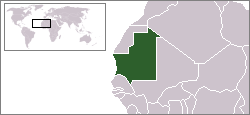Legal Framework
Mauritania’s criminal law is heavily influenced by Islamic sharia, which, along with secular statutes, forms the basis of the penal code. The law includes capital punishment for a range of offenses categorized under both civil and religious provisions. Courts may issue death sentences for crimes such as premeditated murder, violent robbery, treason, terrorism, apostasy, certain sexual offenses, and, in some cases, drug trafficking.
The judiciary is composed of both civil courts and specialized Islamic courts, and capital cases often involve both criminal and religious-legal considerations.
Mauritania has a death penalty for homosexuality; However, the provision is not enforced, and Mauritania is not known to have carried out executions. [2] [3]
This page is based on this
Wikipedia article Text is available under the
CC BY-SA 4.0 license; additional terms may apply.
Images, videos and audio are available under their respective licenses.
